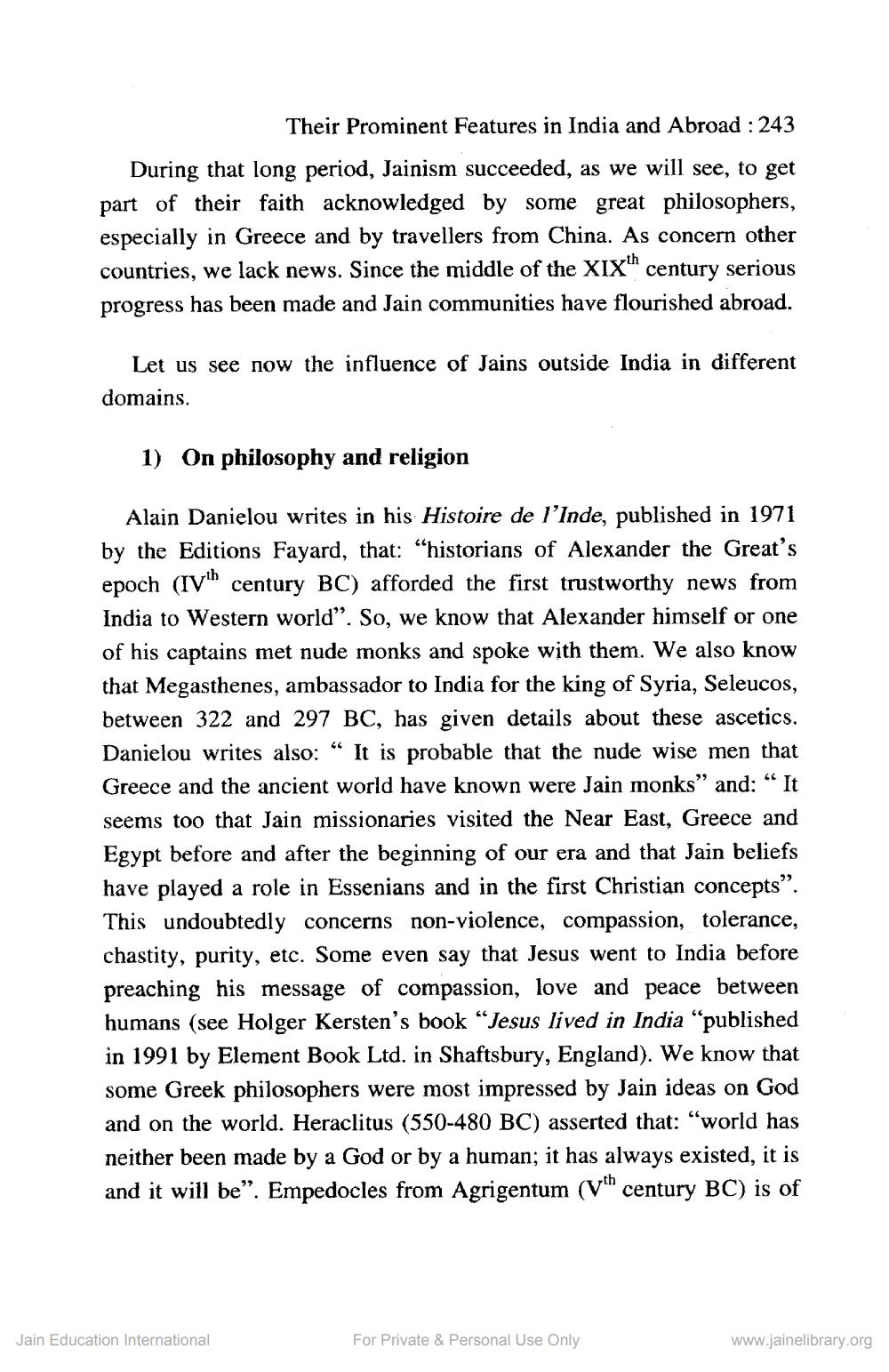________________
Their Prominent Features in India and Abroad : 243
During that long period, Jainism succeeded, as we will see, to get part of their faith acknowledged by some great philosophers, especially in Greece and by travellers from China. As concern other countries, we lack news. Since the middle of the XIXth century serious progress has been made and Jain communities have flourished abroad.
Let us see now the influence of Jains outside India in different domains.
1) On philosophy and religion
CC
Alain Danielou writes in his Histoire de l'Inde, published in 1971 by the Editions Fayard, that: "historians of Alexander the Great's epoch (IVth century BC) afforded the first trustworthy news from India to Western world". So, we know that Alexander himself or one of his captains met nude monks and spoke with them. We also know that Megasthenes, ambassador to India for the king of Syria, Seleucos, between 322 and 297 BC, has given details about these ascetics. Danielou writes also: It is probable that the nude wise men that Greece and the ancient world have known were Jain monks" and: It seems too that Jain missionaries visited the Near East, Greece and Egypt before and after the beginning of our era and that Jain beliefs have played a role in Essenians and in the first Christian concepts". This undoubtedly concerns non-violence, compassion, tolerance, chastity, purity, etc. Some even say that Jesus went to India before preaching his message of compassion, love and peace between humans (see Holger Kersten's book "Jesus lived in India "published in 1991 by Element Book Ltd. in Shaftsbury, England). We know that some Greek philosophers were most impressed by Jain ideas on God and on the world. Heraclitus (550-480 BC) asserted that: "world has neither been made by a God or by a human; it has always existed, it is and it will be". Empedocles from Agrigentum (Vth century BC) is of
Jain Education International
For Private & Personal Use Only
www.jainelibrary.org




